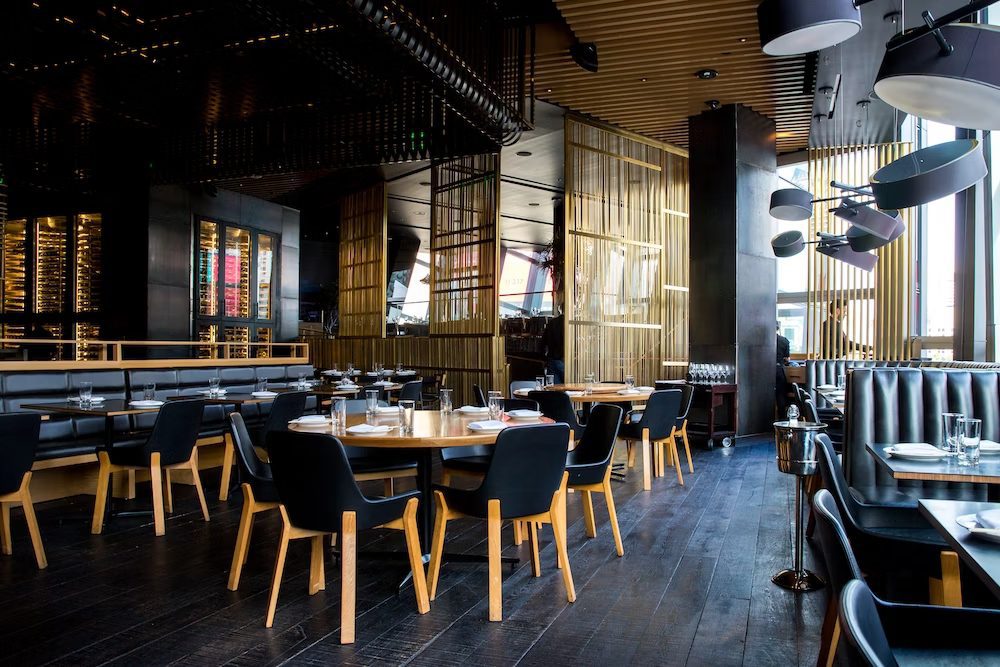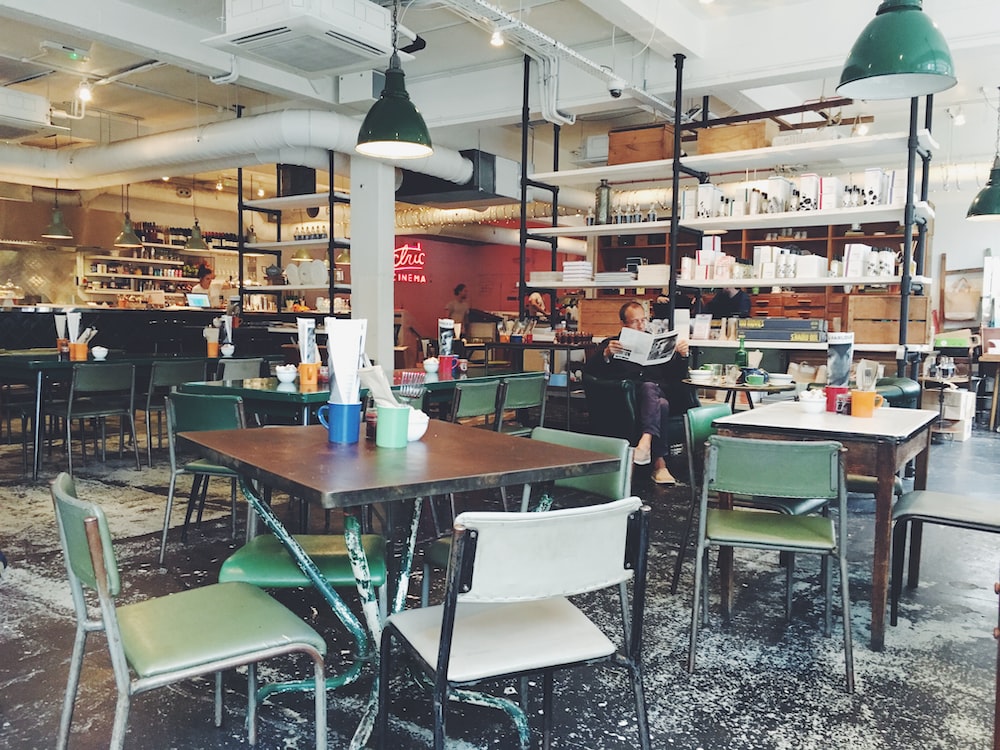What Business Restaurant Insurance Policy?

Operating a restaurant comes with significant risks that can threaten the financial stability of the small business itself. Between the dangers of a foodborne illness, illnesses contaminated food itself, equipment malfunctions, food contamination, customer accidents, and employee injuries; unforeseen losses are an unfortunate reality for many food service establishments. While downtime from claims and legal battles can be stressful, the direct costs of damages, medical bills, and lost income pose an even greater risk without proper protection.
This is where liability insurance plays a vital role for restaurants. By transferring certain specified risks to an insurance company, restaurant insurance policies help protect restaurant business owners’ policies from potentially catastrophic losses. These losses could destroy years of hard work and investment. Not only does a restaurant business owner have an insurance policy and coverage to provide peace of mind during unexpected incidents, but it is also considered a necessary cost of doing business legally and ethically. Restaurants have both a moral and, in some cases, legal obligation to ensure the safety of patrons and hire employees, staff, and the public through adequate liability protection.
Understanding Business Insurance for Restaurants
The types of restaurant and business insurance that are most pertinent to food service operations generally fall under general liability, property, workers’ compensation, commercial auto, business interruption, and umbrella policies. So, how much does restaurant insurance cover? Each restaurant’s insurance plays an integral part in shielding the various assets and operations of a restaurant from harm.
However, with varied choices of providers, coverage limits, and additional coverage options now available, deciding what types of restaurant insurance and business insurance to purchase can seem complex – especially for new restaurant owners.
This guide aims to help restaurant owners and operators navigate these significant decisions by providing a breakdown of the core types of restaurant insurance, the types of business insurance, and the coverage recommended. Also examined are options for tailoring policies to individuals and how much restaurant insurance, business insurance, and owner policy are needed. With well-planned restaurant insurance, business insurance, and portfolio, owners can focus on running a successful operation rather than financial loss from unforeseen events.
Why Restaurant Business Insurance is Essential
While insurance comes at an additional expense, it is crucial for protecting the long-term viability of a restaurant or food business itself. The unpredictable nature of risks like accidents, equipment malfunctions, and natural disasters makes adequate insurance critical for sustainability. A random event such as a fire could force permanent closure without business interruption or property coverage to continue paying bills until reconstruction is complete. Liability insurance is equally important, as even one unresolved injury lawsuit from a customer could bankrupt an underinsured establishment.
Restaurant Insurance Cost and Coverage: A Compulsory Duty
Restaurant owners must also have insurance and cost coverage and consider the safety of staff, patrons, and the wider public as part of business operations. Failing as a restaurant insurance company or policy to cover the costs to maintain sufficient liability limits leaves individuals and the restaurant insurance or company themselves personally vulnerable to financial compensation for third-party harm. Workers’ compensation under the restaurant insurance quote is essential to fulfilling legal obligations for employee healthcare and wages if hurt on the job.
Without a full restaurant insurance policy and full restaurant, insurance costs quote, trying to absorb the total cost of an unexpected yet sizable loss would likely spell the end for all but the most established eateries. Even limiting or reducing your full restaurant insurance cost to save on premiums is a risk not worth taking, considering one major claim could potentially exceed years of savings. For these reasons, professional full restaurant insurance cost quotes, and full restaurant insurance cost and advice are highly recommended to keep a restaurant protected and remain a viable part of the community for years to come.
7 Types of Business Insurance Every Business Restaurant Must Have
General Liability Insurance

General liability insurance protects restaurants from further legal costs, defense costs, and financial losses due to injuries or harm occurring on the restaurant industry business premises. It covers legal claims, medical bills, and costs that may arise if customers or the general public experience accidents during visits to the establishment.
Typical general liability insurance policies will protect your business against bodily injuries, property damage, and other related expenses like medical bills and costs. Adequate full liability coverage and limits, usually expressed in amounts of at least $1,000,000, are important based on the significant costs that bodily injury claims can involve. Additional coverage options may provide higher full liability coverage maximums if your business sells alcohol or caters for larger events.
What Restaurant General Liability Coverage Works for?
Losses resulting from poor restaurant maintenance, property damage, or negligence are also factors this restaurant liability insurance would cover; restaurant liability insurance is designed to address these issues. An example might involve someone’s property failing to properly remove debris that causes a patron to slip and sue for restaurant insurance to cover the costs of medical bills and lost wages. General restaurant liability insurance cover would cover the restaurant owner’s legal defense costs and any settlement or judgment awarded.
In addition to primary premises liquor liability insurance for restaurants that serve alcohol, some fine dining and restaurant insurance policies may be extended to off-site catering events and deliveries. This insurance helps protect and manage risks if utilizing mobile fast food, trucks, or pop-ups away from the main location to protect your business. General liability insurance remains a staple protection for the fine dining and restaurant industry and establishments due to the regular frequency of minor customer injuries and the risks of larger-scale events.
Maintaining current liability limits suited to the size and scope of a food and beverage business food poisoning, and operations provides essential peace of mind. It protects food and beverage businesses’ finances and personal assets from costly lawsuits alleging negligence on the property or during food handling incidents resulting in foodborne illness anywhere.
Property Insurance
No business owner wants to see years of investment and hard work destroyed in an instant by an unforeseen disaster. Property insurance provides critical financial protection for restaurants against the various risks that could damage buildings, equipment, and inventory. Losses such as fire, water damage, hurricanes, storms, and acts of vandalism are chief threats to a restaurant’s business property. Without proper restaurant liability insurance, the costs of rebuilding or repairing could potentially sink the restaurant owner or business’s entire operation.
Types of Property Coverage Options
The two main types of property available are replacement cost value and actual cash value. Actual cash value paid based on the depreciated value of losses, which may be insufficient to make a restaurant whole again after a major incident.
Valuable commercial kitchen gear, stored foodstuffs, small wares, and dining areas are all contents that require both commercial property insurance and business insurance protection. These types of business and commercial property insurance ensure personal properties can be added to the standard for commercial and business insurance or as a separate policy. Additional living quarters may be included as important coverage if the restaurant is part of a mixed-use commercial property.
Through compensation for unexpected property damage expenses, restaurants can hire employees and focus on recovery and re-opening rather than financial ruin in the face of natural disasters or accidental losses.
Workers’ Compensation Insurance

No matter how diligently safety protocols are followed in a restaurant, on-the-job injuries for employees are an inevitable potential risk that restaurant business owners must prepare for, both legally and financially. This is where workers’ compensation insurance provides indispensable financial protection for all restaurant business owners.
As required by law in all states except Texas, workers’ compensation insurance covers medical expenses and lost wages for staff hurt while performing job duties. By law, workers’ compensation insurance benefits must be provided regardless of fault for accidents, except in cases of employee dishonesty. Workers’ compensation ensures legal compliance while relieving restaurants of liability lawsuits and legal costs from injured staff seeking additional damages. Payouts are also exclusive of any other insurance or unemployment benefits employees may receive.
Mandatory Worker’s Compensation
This mandatory policy is typically obtained through either a private insurer or state-run competitive funds. Aside from those employees fulfilling legal obligations, workers’ comp is also a smart long-term business investment in employee retention and satisfaction. It promotes a positive work environment by protecting employees’ livelihoods and addressing costs if accidents do unfortunately occur. And it removes from employees the threat of potentially devastating lawsuit expenses.
Well-run restaurant safety protocols and worker training can help minimize injuries. But properly maintaining workers’ compensation ensures that whatever happens doesn’t also threaten the other small businesses’ financial security through extended absences or costly litigation payouts.
Business Interruption Insurance
While property damage poses risks, an equally concerning threat is lost business income from extended closure due to unforeseen circumstances like critical data breaches. This is where business interruption insurance plays a crucial role for restaurants.
Common scenarios that could trigger interruption payouts include property damage or losses from hazards such as fires or floods, supply chain disruptions preventing deliveries, power outage, or service outages involving utilities. Even temporary shutdown orders from health inspections or emergency repairs from power outages could be helped financially through this policy.
Payout payback structure typically includes reimbursement of fixed costs still incurred by customers despite closure, like rent, loan interest, and necessary payroll. Lost net income projections help pay to offset revenue shortfalls during recovery payback.
Select Suitable Interruption Business Insurance
Higher premiums reflect the inherent uncertainty in predicting prolonged interruptions. But even moderate periods with a restaurant closed can have severe cash flow impacts if relying solely on savings or loans to weather the gap. It helps address this and expedites getting doors reopened for customers.
Interruptions protect your other business income and income stemming from key staff illnesses or pandemics, which may also be included in the next insurance. Selecting endorsement terms carefully can help to make insurance protect your business, and the continuing viability of operations of yet-to-be-covered events strike both property damage and income simultaneously.
Without business interruption safeguards in an unplanned closure situation, restaurants left responsible for ongoing costs face high bankruptcy risk. The policy strengthens financial resilience through contingency provisions beyond just basic property protection alone.
Umbrella Insurance Policies
While primary liability and property policies provide key coverage, umbrella insurance offers simple protection against even larger financial exposures. Restaurants often purchase additional umbrella protection to supplement general liability and auto insurance limits.
Umbrella policies kick in above the limits of underlying auto, liability, and property protection. They help shield both business and personal assets from verdicts or settlements exceeding the primary maximums. This higher tier of protection is especially recommended for high-risk food service operations with liquor sales or special events. For a fraction of total annual insurance costs, higher liability coverage thresholds are attained through a single supplemental policy.
Stay Protected Beyond Limits
Worthwhile premiums may seem counterintuitive given infrequent yet costly claims. However, the potential exists for even minor incidents to result in litigation payouts dwarfing standard general liability insurance policy amounts. Umbrella cyber liability insurance coverage thus offers a strong defense against such “one in a million” lawsuits and other expenses that could cripple an operation.
It also safeguards small businesses, restaurant owners, and employees against losses and expenses deemed outside the scope of most business insurance primary policies, such as certain product liability, pollution, or intellectual property disputes. When combined with strong risk management practices, umbrella business insurance strengthens financial crisis preparedness for restaurants and small businesses facing litigious environments.
Insurance for High-Risk Operations
Certain other restaurant industry concepts involve higher levels of risk that require special insurance considerations when held liable. Food trucks, bars/restaurants serving alcohol, and catering/event businesses all face unique exposures necessitating unique coverage approaches.
Food trucks operate off-premises without permanent facilities, increasing risks of theft, accidents, and property damage to mobile equipment. Policies must address liabilities while catering is underway, as well as during transportation. Additional coverage for food contamination and spoilage of perishable inventory during power outages is also important.
Bars and restaurants selling alcohol warrant extra protection from liquor liability insurance due to the increased likelihood and the legal fees and medical costs of liability claims from intoxicated customers. Liquor liability insurance coverage addresses medical costs and legal fees for damages that may arise from improper alcohol service or underage sales. So, how much does restaurant insurance like this cost? Higher general and other liquor liability insurance full amount limits, sometimes $2 million or more, are also prudent, given litigation risks.
Catering and Events Restaurants Risk Coverage
Catering and event businesses face exposure both on and off the main restaurant premises as they take food service operations to various temporary and semi-public venues. Extending general and liquor liability and insurance coverage, other than cyber liability insurance, restaurant insurance coverage, and hired vehicles owned/non-owned commercial auto insurance coverage for events, is necessary. Umbrella policies provide restaurant insurance costs an added defense against costlier claims that may stem from high-volume crowd service situations.
Carefully selecting insurance companies with appropriate endorsements and customized policies allows these riskier restaurant operations to benefit from insurance protections suited to their unique exposures. Working with experienced agents also ensures compliance with regulatory requirements. Next, insurance is based on each state’s rules for mobile food and beverage/alcohol service and restaurant front. With the right insurance coverage, restaurants, and fast food restaurants have greater confidence in managing varied risks as they expand their restaurant services.
Get Insurance for Business Restaurant Today

Comprehensively ensuring a full restaurant business insurance also requires thoughtful planning to address the varied risks involved. However, taking the time to implement recommended coverage and types of restaurant business insurance often pays dividends in protecting long-term viability when unforeseen issues do unfortunately occur.
General liability, property, workers’ compensation, and business interruption policies form the foundation of a strong portfolio by covering core exposures. Options like full commercial auto insurance, liquor liability insurance, and umbrella policies provide supplemental protection against larger losses. Maintaining up-to-date, appropriately high liability limits gives greater assurance that claims will be resolved without severe financial distress. Partnering with an experienced insurance agent allows for tailoring coverage to individual needs.
Conclusion
Adequate restaurant business insurance allows restaurant owners and managers to operate fearlessly, focusing energy on delighting customers rather than financial concerns. It provides assurances to staff, vendors, and investors as well by instilling confidence in the food business’s stability and capacity to recover from adversity.
With premium costs treated as a necessary expense to pay to safeguard years of hard work, restaurant insurance represents one of the soundest investments for sustaining any serious food and beverage business or service venture through both calm and turbulent periods in the food business. Seeking professional guidanceon your restaurant insurance costs helps to protect your business and gives food and beverage business owners greater peace of mind as they work to build a thriving community eatery for years to come.



